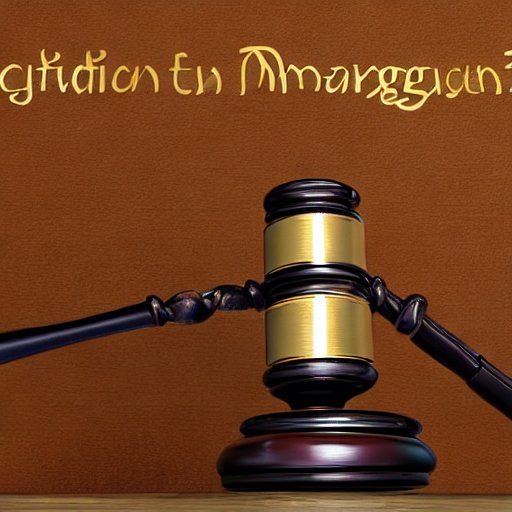Managing translation projects can be challenging as a legal support manager or translation services manager in a law firm. The legal industry is known for its complex and nuanced language, and ensuring that translations are accurate and complete is crucial to the success of any legal project. In addition to these challenges, managing budgets, timelines, and the quality of legal translations can be a daunting task, especially in a high-volume environment.
To make your job easier and save your company time and money, it is essential to establish precise and efficient processes for managing translation projects. This includes identifying and working with qualified translators and translation agencies, setting clear project timelines and milestones, establishing transparent quality assurance processes and monitoring and managing budgets. In this article, we will share insider tips and best practices to help legal support managers and translation services managers to navigate these challenges, and master the art of translation management in the legal industry.
Establish clear project timelines and milestones
- Define the scope of the project: Before you begin setting timelines and milestones, it’s important to clearly define the scope of the project. This includes identifying the documents that need to be translated, the languages involved, and any specific requirements or deadlines.
- Break the project into smaller tasks: Once you have a clear idea of the scope of the project, break it down into smaller tasks that can be managed and tracked more easily. This will help you to identify the resources and personnel that you will need and to plan the project more effectively.
- Create a project plan: Using the tasks that you have identified, create a detailed project plan that outlines the steps that will be taken to complete the project, including who will be responsible for each task, what resources will be required, and when each task will be completed.
- Identify key milestones: Identify key milestones in the project plan that represent significant stages of completion. These can be things like finishing the translation of a certain document, having a review by legal experts, or receiving client approval.
- Set realistic deadlines: Based on your project plan, set realistic deadlines for each task and milestone. Be sure to take into account any factors that may affect the project, such as the availability of resources or external factors.
- Communicate timelines and milestones: Once you have established the project timelines and milestones, be sure to communicate them clearly to all relevant parties, including the translation agency, legal team, and any other stakeholders.
- Monitor progress: Regularly monitor the progress of the project and the completion of each task and milestone. Use the project plan as a guide and adjust timelines or reassign tasks as needed to ensure that the project stays on track.
- Review and adjust: After the project is completed, review the project and identify any areas where improvements could be made. Use this information to adjust your project plan and timelines for future translation projects.
Identify and work with qualified translators and agencies
- Understand the specific requirements: Before you begin searching for legal translators or agencies, have a clear understanding of the specific requirements for your translation project. This includes the languages involved, the legal field and terminology, and any specific requirements or deadlines.
- Research potential translators and agencies: Look for translators and agencies that have experience in the legal field and in the specific languages required for your project. Research the translators and agencies and ask for references, and testimonials or ask to see samples of previous work.
- Check for certifications and accreditations: Identify translators and agencies that hold relevant industry certifications, such as ISO 17100. These certifications indicate that the translator or agency has met certain standards of quality and professionalism.
- Confirm availability and turnaround time: Confirm that the translators and agencies you are considering have the availability and turnaround time to handle your project.
- Consider data protection compliance: Make sure that the translators and agencies you are working with are compliant with relevant data protection laws and regulations and have policies in place to protect sensitive information.
- Maintain a list of approved translators and agencies: Maintain a list of approved translators and agencies that you have worked with and have been successful in the past, it will be easier to contact them in the future, instead of starting from scratch.
- Establish clear lines of communication: Establish clear lines of communication with the translators and agencies that you are working with. Make sure that they are aware of your specific requirements, timelines and budget.
- Review and evaluate performance: After the project is completed, review the work of the translators and agencies and evaluate their performance. Use this information to adjust your selection criteria and to decide whether to work with them again in the future.
- Be open to feedback: Be open to feedback and be willing to make adjustments as necessary. This can help you improve your process and build better relationships with your translators and agencies.
Implement an efficient quality assurance process
- Define the quality assurance process: Before starting the quality assurance process, define the process and what it will entail. This will include the steps and procedures that will be followed to review and validate translations.
- Assign a review team: Assign a team of legal experts or other qualified personnel to review and validate translations. This team should have the knowledge and experience to identify and correct any errors or inconsistencies in the translations.
- Establish clear standards: Establish clear standards for the quality of legal translations, including guidelines for grammar, terminology, and formatting. This will help the review team identify any issues and to make necessary corrections.
- Use software tools: Use software tools such as CAT tools, Translation Memory tools and Language Quality tools that can aid in the validation process. These tools are designed to identify and correct errors, improve consistency, and make the process more efficient.
- Communicate expectations: Clearly communicate the quality expectations to the translators and translation agencies. Make sure they understand the process, the standards and the criteria that will be used to evaluate the translations.
- Review and Feedback: Regularly review and provide feedback on the legal translations.
Monitor and manage budgets
- Establish a budget: Establish a budget for the translation project, taking into account the scope of the project, the number of pages or words to be translated, and the languages involved.
- Identify cost drivers: Identify the key cost drivers for the translation project, such as the number of languages, the complexity of the legal terminology, and the number of pages or words to be translated.
- Get quotes from multiple providers: Get quotes from multiple translators and translation agencies, compare prices and the level of service offered, and select the best fit considering quality, cost and delivery time.
- Set clear payment terms: Set clear payment terms with the translators and agencies, including payment milestones, invoicing schedules and any penalties for late payments.
- Track expenses: Track expenses related to the translation project, including costs for translation, editing, proofreading, and any other costs that may arise.
- Monitor project status: Monitor the status of the translation project and adjust the budget as necessary. Be aware of any changes to the project that may impact the budget, such as changes to scope or changes in the exchange rate.
- Review and adjust: After the project is completed, review the project and the associated expenses. Identify any areas where the budget could be improved in the future. Use this information to adjust your budget for future translation projects.
- Communicate with other stakeholders: Communicate with other stakeholders in the company, such as the legal team, and keep them informed of the project status, including any budget overruns or issues that may arise.
Data protection in legal translations
Data protection is a crucial aspect of managing translation projects effectively.
- Understand data protection laws and regulations: Understand the laws and regulations that apply to data protection, such as the EU General Data Protection Regulation (GDPR) and the Health Insurance Portability and Accountability Act (HIPAA) in the US.
- Obtain client consent: Obtain client consent for any legal translations that involve sensitive or personal data. This should include explicit consent for the translation itself, as well as for any storage or handling of the data by translators or translation agencies.
- Use secure channels: Use secure channels, such as encrypted email or file-sharing platforms to send and receive translation files.
- Establish a data protection policy: Establish a data protection policy for the translation project, including guidelines for handling, storage, and destruction of data.
- Ensure compliance: Ensure that the translators and translation agencies you are working with are compliant with relevant data protection laws and regulations and that they have implemented appropriate security measures to protect the data.
- Review and evaluate: Regularly review and evaluate the data protection practices of the translators and translation agencies that you are working with, and take appropriate action if any issues or breaches are identified.
- Train the translators and translation agencies: Provide training for translators and translation agencies on data protection laws and regulations, as well as on the data protection policy for the translation project. This will ensure that they understand the importance of protecting sensitive data and that they know how to handle and protect data properly.
- Have a data breach response plan: Have a data breach response plan in place and ensure that the translators and translation agencies are aware of the plan and know what to do in case of a data breach. This can include steps to contain the breach, notify relevant parties, and conduct a post-breach review.
- Regularly audit and assess: Regularly audit and assess the data protection practices of the translators and translation agencies that you are working with. This can include reviewing their data protection policies and procedures, checking for compliance with relevant laws and regulations, and testing their security measures.
- Communicate data protection requirements to other stakeholders: Communicate data protection requirements to other stakeholders in the company, such as the legal team, and make sure that they understand their responsibilities regarding data protection.
Stay up to date
- Research the latest laws, regulations and industry developments: Research the latest laws, regulations, and industry developments in the legal field, and in the field of translation, that may impact your translation projects.
- Subscribe to relevant publications: Subscribe to relevant publications, such as legal journals, translation industry publications, and news websites that cover legal and translation-related news and developments.
- Attend industry conferences and webinars: Attend industry conferences and webinars, both virtual and in person, to learn about the latest trends, best practices, and new technologies in the legal and translation fields.
- Network with peers and experts: Network with peers and experts in the legal and translation fields. This can be done through professional associations, social media, or online communities and will give you the opportunity to learn from their experience and ask questions.
- Take online courses and certifications: Take online courses and certifications to deepen your knowledge of legal matters and translation procedures.
- Have a system to collect and store the knowledge: Develop a system to collect and store the knowledge you gain from the sources above and be able to access it easily when needed.
Communicate effectively
- Establish clear lines of communication: Establish clear lines of communication with all relevant parties, including the translation agency, legal team, and any other stakeholders.
- Define roles and responsibilities: Define the roles and responsibilities of each party involved in the translation project, and communicate this clearly.
- Set regular check-ins: Set regular check-ins with the translation agency, legal team, and any other stakeholders to ensure that the project is on track, and to address any issues or concerns that may arise.
- Use clear and concise language: Use clear and concise language when communicating about the translation project, and avoid using jargon or industry-specific terms that may not be understood by all parties.
- Communicate any changes: Communicate any changes to the project scope, timelines or budget as soon as possible, to avoid misunderstandings and delays
- Use appropriate means of communication: use the most appropriate means of communication for each situation, for example, for a complex matter that requires explanation and discussion, a call or a face-to-face meeting may be more effective than an email.
- Confirm receipt and understanding: Confirm receipt and understanding of any information provided or instructions given.
- Seek feedback: Seek feedback from all parties involved, including the translation agency, legal team, and other stakeholders, to ensure that they are satisfied with the project and that communication is effective.
Consider cultural nuances
- Understand cultural context: Understand the cultural context of the languages and countries involved in the translation project.
- Research cultural norms and conventions: Research the cultural norms and conventions of the languages and countries involved in the translation project. This will help you to avoid any potential misunderstandings or misinterpretations.
- Hire translators and review team with cultural understanding: Hire translators and review team members who are familiar with the cultural norms and conventions of the languages and countries involved in the translation project.
- Check for cultural sensitivity: Review the translations for cultural sensitivity, and ensure that idioms, cultural references, humour, and other elements are adapted to the target culture.
- Use of glossary and style guide: Use a glossary and style guide to ensure consistency in the use of terminology and cultural references in the legal translations.
- Provide cultural training: Provide cultural training to the translators, review team and other relevant parties to help them understand cultural nuances and how they can impact the translation project.
- Be open to feedback: Be open to feedback and be willing to make adjustments as necessary, to ensure that the translations are accurate, culturally appropriate and sensitive.
- Review for cultural accuracy: Regularly review the translations for cultural accuracy, and make necessary adjustments to ensure that the translations are appropriate for the target audience.
Conclusion for legal translations management
Managing translation projects in the legal industry can be a complex and challenging task. However, by following best practices such as establishing clear quality assurance processes, identifying and working with qualified translators and agencies, monitoring and managing budgets, ensuring data protection, staying up-to-date, and communicating effectively, legal support managers can improve their translation project management processes and achieve successful outcomes.
Additionally, considering cultural nuances is also important to ensure that translations are accurate and appropriate for the target audience. Keeping all of these tips in mind will go a long way in ensuring that your translation projects run smoothly, on time and within budget.
If you’re looking for a translation agency that can help you with your legal translation projects, Slavis Translations could be a great option. They are a company that specialized in legal translations, with a team of qualified translators and linguists who understand the importance of accurate and culturally-appropriate translations. With a focus on quality, timeliness and budget management, Slavis Translations can help you streamline your translation projects, leaving you with one less thing to worry about. Try their services today and experience the difference for yourself.




